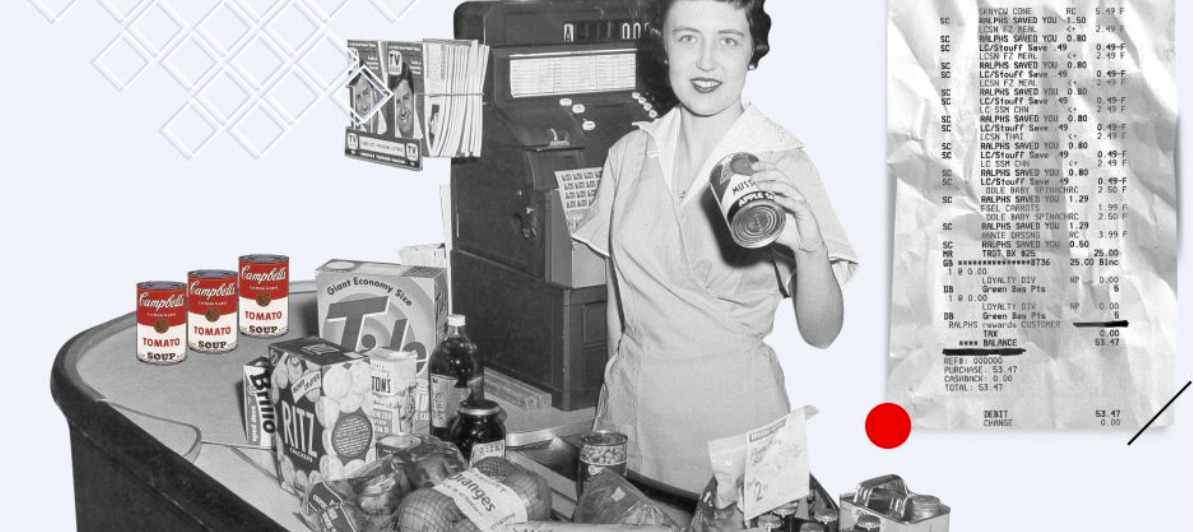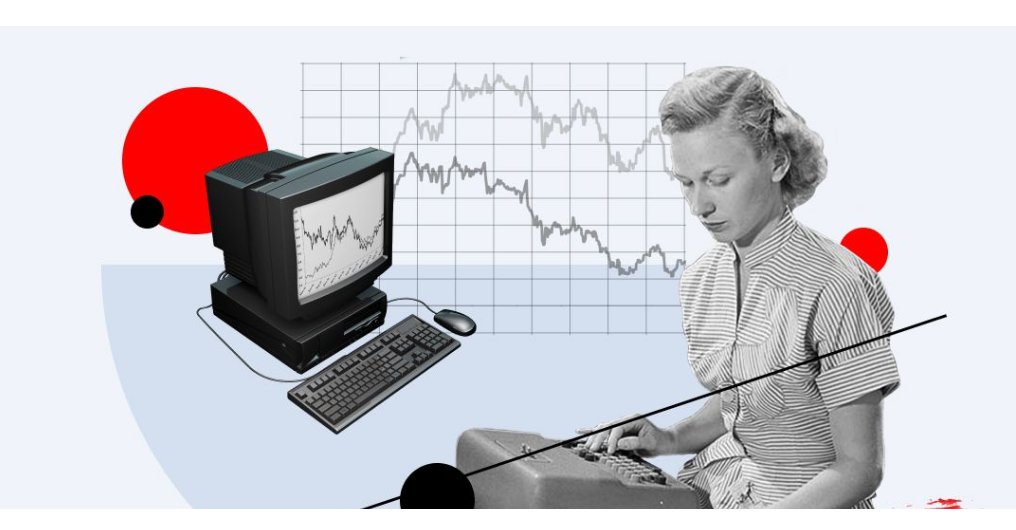The retail industry has changed more in the last 10 years than in the previous 50. Customers compare prices in real time, expect same-day delivery, personalized offers, seamless loyalty programs, and smooth in-store experiences. At the center of all this is one thing: the retail app.
Because of that, retail app development companies have become strategic partners, not just outsourced dev teams. They help retailers connect online and offline, improve operations, and create experiences that keep customers coming back.
In this article, we’ll break down:
What retail app development companies actually do
Types of retail apps they build
Must-have features and integrations
How to evaluate and choose a development partner
Typical timeline, team structure, and cost drivers
Common mistakes retailers make – and how to avoid them
Future trends shaping retail apps
No fluff, just a practical guide you can use as a checklist when working with a development vendor.
What Are Retail App Development Companies?
Retail app development companies are software development agencies or product studios that specialize in building digital solutions for retail businesses: mobile apps, web apps, internal tools, and omnichannel platforms focused on the shopping experience.
They usually work with:
E-commerce brands
Brick-and-mortar chains
Grocery and food retailers
Fashion and apparel brands
Marketplaces and multi-vendor platforms
Direct-to-consumer (D2C) brands
Their job is not just to write code. Strong retail app development companies combine:
Business understanding – retail KPIs, margins, churn, LTV, average order value, etc.
UX and CX design – shopper journeys, cart behavior, mobile checkout flows
Technology expertise – mobile frameworks, backend, integrations, cloud, security
Data and personalization – recommendations, segmentation, analytics
In other words, they help turn retail strategy into a digital product that actually drives revenue and loyalty.
Types of Retail Apps They Build
When people think of a “retail app,” they often picture a standard shopping app. In reality, retail app development companies work across a wide range of products.
1. Customer-Facing Shopping Apps
These are the classic apps customers download to:
Browse products
Check stock and prices
Add items to wishlists or carts
Pay via card, wallet, or BNPL
Track orders and returns
They’re often integrated with:
E-commerce platforms (Shopify, Magento, custom backends)
Payment gateways
Loyalty programs and CRMs
Delivery or logistics systems
2. Loyalty and Membership Apps
Retailers use loyalty apps to:
Issue and manage points or cashback
Show personalized offers and coupons
Provide tiered membership benefits
Enable digital cards instead of plastic
These apps are designed to increase repeat purchases and basket size by keeping the brand “in the customer’s pocket.”
3. In-Store Experience Apps
Some apps are built specifically to enhance the physical store:
Digital price checkers and product info
Scan-and-go self-checkout
Store maps and aisle navigation
In-store pickup and click-and-collect management
These apps require tight integration with POS systems and in-store hardware.
4. Internal Retail Apps
Not all retail apps are customer-facing. Many are built for employees:
Inventory management apps
Store associate tools (clienteling apps)
Warehouse and picking apps
Delivery and courier apps
These directly impact efficiency, shrinkage, and operational costs.
Key Services Provided by Retail App Development Companies
When you hire a retail app development partner, you’re usually not just paying for coding. End-to-end retail app development companies typically offer a complete lifecycle:
1. Discovery and Product Strategy
The first stage is understanding:
Business model and revenue streams
Target audience segments
Existing tech stack and limitations
Main KPIs: conversion, retention, average order value, etc.
Deliverables often include:
Product vision and roadmap
Feature prioritization
High-level architecture
Rough timeline and budget estimate
2. UX/UI Design
Design is critical in retail. A beautiful but confusing app kills conversion. Good companies:
Map customer journeys (from install to repeat purchase)
Create wireframes and interactive prototypes
Test flows like onboarding, search, filters, and checkout
Ensure accessibility and mobile-first layouts
3. Development (Frontend + Backend)
This is where the app is actually built:
Frontend: mobile app (iOS/Android), responsive web, or both
Backend: API layer, business logic, integrations, and databases
They may use:
Native mobile development (Swift, Kotlin)
Cross-platform frameworks (React Native, Flutter)
Cloud infrastructure (AWS, GCP, Azure)
The choice depends on timeline, budget, performance requirements, and your existing systems.
4. Integrations With Retail Systems
Retail apps rarely live in isolation. They must talk to:
E-commerce platforms or custom CMS
Product information management (PIM)
ERP and inventory systems
POS systems in stores
CRM and marketing automation tools
Payment gateways and wallets
Delivery and logistics providers
Experienced retail app development companies already know the typical pitfalls (like syncing stock across channels or handling partial returns), and design the architecture accordingly.
5. QA, Security, and Compliance
High-quality vendors prioritize:
Functional testing (does everything work?)
Performance testing (app speed, load times, peak sales events)
Security testing (data protection, secure payments, encryption)
Compliance (GDPR where relevant, PCI-DSS for payments, etc.)
For retail, downtime or bugs directly equal lost sales and negative reviews, so testing isn’t optional.
6. Launch, Support, and Iteration
After launch, the work continues:
Monitoring performance and crash reports
Fixing bugs and adapting to OS updates
A/B testing UX changes (e.g., different checkout flows)
Rolling out new features based on analytics and feedback
The best retail app development companies act as long-term partners, not one-off vendors.
Must-Have Features in a Modern Retail App
When planning an app with a development partner, it helps to know what’s “standard” in the market.
Core Shopping Features
Fast product catalog with smart filters and sorting
High-quality images and rich product descriptions
Real-time stock and price updates
Simple, guest-friendly checkout
Multiple payment methods (cards, wallets, BNPL, gift cards)
Order tracking and status notifications
Personalization and Engagement
Personalized home screens and recommendations
Recently viewed and “complete the look” sections
Targeted push notifications (not just spam promotions)
Wishlist and favorites
Loyalty points and reward dashboards
Omnichannel Capabilities
Click-and-collect (buy online, pick up in store)
Reserve in store
Store locator with opening hours and directions
Unified view of orders and returns across channels
Customer Support
In-app chat or messaging
Easy access to FAQs and return policies
One-tap call or email support
Analytics and Insights
Behind the scenes, your team needs dashboards and events to measure:
Retention and churn
Funnel drop-offs (e.g., product view → add to cart → checkout)
Impact of promotions and campaigns
Behavior of different customer segments
Retail app development companies help set up analytics events so you’re not “flying blind” after launch.
How to Choose the Right Retail App Development Company
Choosing a development partner is a strategic decision. Here’s what to evaluate.
1. Domain Experience in Retail
Ask:
Have they built retail or e-commerce apps before?
Can they show case studies with KPIs (conversion uplift, retention, etc.)?
Do they understand promotions, discounts, stock logic, and returns?
Generalist agencies can be good, but companies with retail-specific experience move faster and make fewer costly mistakes.
2. Portfolio and References
Look at:
Live apps in the app stores
Reviews and ratings
UI quality and performance
Complexity of features (e.g., loyalty, omnichannel, advanced search)
If possible, talk to one or two of their existing clients about:
Communication style
Reliability
How they handle problems (because there will always be some)
3. Technical Expertise and Architecture
Check that they:
Propose a scalable architecture (can handle peak sales traffic)
Understand integrations with your systems
Follow best practices for security and testing
Have experience with your preferred tech stack
A strong technical team helps you avoid painful rebuilds later.
4. Product Thinking, Not Just Coding
Good retail app development companies ask hard questions:
“Do you really need this feature in the MVP?”
“How will this impact conversion or retention?”
“Can we test this with a prototype before full development?”
They help prioritize features based on business value, not just build a “wish list” of functionality.
5. Communication and Collaboration
Retail projects touch multiple departments: IT, marketing, operations, finance, even store managers. You need a partner that:
Communicates clearly and frequently
Shares progress with demos and sprints
Uses transparent tools (Jira, Notion, etc.)
Responds quickly to issues, especially around major sales events
Typical Team Structure on a Retail App Project
A solid retail app project usually involves a cross-functional team, for example:
Product Owner (your side) – defines business priorities and requirements
Project Manager / Delivery Manager – coordinates timelines and communication
Business Analyst – translates business needs into technical requirements
UX/UI Designer – designs flows, wireframes, visual UI
Mobile Developers – iOS and Android, or cross-platform
Backend Developers – APIs, integrations, databases
QA Engineers – testing across devices, scenarios, and edge cases
DevOps / Cloud Engineer – deployment, scaling, monitoring
Small projects may combine some roles, but you should still see design, development, and testing clearly represented.
Timeline and Cost Drivers
Every project is unique, but understanding what drives time and cost helps you plan realistically.
Main Factors Affecting Timeline
Scope of features – basic catalog + checkout vs. complex loyalty, personalization, and omnichannel flows
Number of integrations – e-commerce platform, ERP, CRM, payment systems, logistics, etc.
Platforms – iOS only, Android only, both native, or cross-platform
Existing infrastructure – clean APIs vs. legacy systems needing workarounds
Non-functional requirements – performance, security, compliance
Typical phases might look like:
Discovery and design: a few weeks to a couple of months
Development and integration: a few months for an MVP, longer for complex solutions
Testing, stabilization, and launch: several weeks
Main Cost Drivers
Team size and seniority
Project duration
Complexity of features and integrations
Maintenance and support model after launch
Transparent retail app development companies will give you:
A rough initial estimate
A more precise estimate after discovery
Ongoing visibility into actual vs. planned hours
Common Mistakes Retailers Make (And How to Avoid Them)
Even with a good development partner, projects can go off track. Here are typical pitfalls and how to avoid them.
1. Trying to Build “Everything” in Version 1
A huge scope leads to:
Delayed launch
Bloated budget
More bugs and complexity
Fix: Define a clear MVP with your partner. Focus on:
Smooth onboarding
Fast navigation and search
Reliable checkout
Basic account and order management
Add loyalty, advanced personalization, and fancy features later, once the core funnel works.
2. Ignoring Omnichannel from the Start
Some companies build an app as a separate channel, not connected to stores or web. That creates:
Fragmented customer data
Inconsistent pricing or promotions
Poor experience for customers moving between channels
Fix: Work with retail app development companies that understand omnichannel. Even if you don’t implement everything on day one, design the system to:
Share inventory data
Sync customer profiles and loyalty
Enable features like click-and-collect down the line
3. Underestimating Content and Product Data
A technically perfect app can still perform poorly if:
Product images are low-quality
Descriptions are incomplete or inconsistent
Categories and filters are messy
Fix: Plan for product content work in parallel with development:
Standardize naming and attributes
Define clear categories and filters
Invest in good product photography
4. Weak Analytics Setup
Without proper analytics, you cannot:
See where customers drop out
Measure ROI of new features
Run meaningful experiments
Fix: Ask your partner to define events and tracking from day one:
Screen views and key actions
Funnel events (view → add to cart → checkout → purchase)
Engagement metrics (session length, retention, etc.)
5. Treating the App as a One-Time Project
Retail is dynamic. Prices, promotions, customer expectations, and competitors change constantly.
Fix: Plan for ongoing evolution:
A small, dedicated maintenance and improvement budget
Regular releases (monthly or even more frequent)
A backlog of improvements based on real data and feedback
The best retail app development companies will propose a long-term collaboration model, not just a “build and disappear” relationship.
Future Trends in Retail Apps
When discussing your roadmap with a development partner, it’s worth considering the trends shaping the next few years.
AI-Driven Personalization
Product recommendations based on user behavior and preferences
Personalized promotions and dynamic pricing
Smart search with natural language queries
Augmented Reality (AR)
Virtual try-on for fashion, beauty, and accessories
Visualizing furniture or decor in a customer’s home
Interactive in-store experiences
Hyper-Convenience Features
One-tap reorders and subscriptions
Ultra-fast checkout with saved payment methods
Instant customer service via chatbots + human handover
Deeper Omnichannel Integration
Single customer view across all channels
Seamless transitions between web, app, and store
Consistent loyalty programs and rewards everywhere
Retail app development companies that are already experimenting with these technologies can help you stay ahead rather than playing catch-up.
Conclusion: Treat Your Development Partner as a Strategic Ally
Retail apps are no longer “nice to have.” They are a primary channel for discovery, engagement, and sales. Choosing the right retail app development companies to partner with can make the difference between:
An app that looks good but doesn’t move the needle
And a product that truly drives revenue, loyalty, and market advantage
To recap, when evaluating a partner, look for:
Proven retail experience and relevant case studies
Strong UX/UI and product thinking, not just coding
Deep understanding of integrations and omnichannel
Transparent communication, realistic timelines, and clear costs
Commitment to analytics, iteration, and long-term support
If you approach the project with a clear strategy, realistic expectations, and a collaborative mindset, your retail app can become one of your most powerful business assets – not just another icon on a crowded home screen.





Write a comment ...